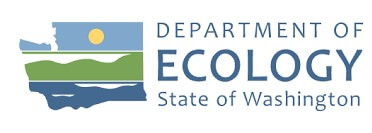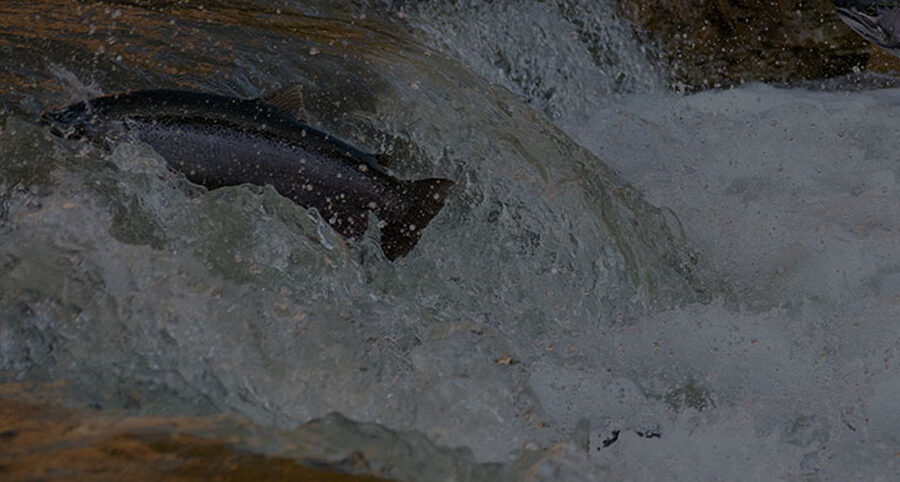The Salmon-Safe certification is a recognized eco-label. The Salmon-Safe logo tells your consumers that your operation is doing your part to help restore West Coast rivers and native salmon. Farms and vineyards go through a peer-reviewed certification and accreditation process to earn the Salmon-Safe title. Farms, vineyards, cideries, or other agricultural operations in Chelan County, WA and the interior Columbia basin are eligible to receive certifications at no cost, if you partner with Cascadia. The Department of Ecology has awarded Cascadia with grants to cover third-party certification fees for first time applicants. Farm and vineyard certifications are valid for three years.
Cascadia provides free assistance to farmers in Chelan County and the interior Columbia basin to become Salmon-Safe certified. The Salmon-Safe certification recognizes farms and vineyards that use water efficiently, practice integrated pest management, and protect stream habitat.
The Salmon-Safe ecolabel was created in the late 1990s to translate consumer concerns for salmon into support for farmers who do right by their natural resources and fish. The certification benefits fish and farmers, and it helps protect surface water. Farms that meet the peer-reviewed standards have their products recognized on the market as certified Salmon-Safe. This makes their natural resource stewardship easily visible to customers, restaurants, and grocery stores eager to support such efforts. Certified products can range from eggs to apples to hard cider or wine.
Locally, threatened and endangered bull trout, steelhead and Chinook salmon will benefit from the suite of environmental practices that Salmon-Safe farms are using to protect their habitat. Additionally, all residents benefit from clean surface water, which is used as a drinking water source in many areas.
If you are an interested consumer looking for the Salmon-Safe label on your product (wine, food, cider etc.) visit https://salmonsafe.org/buy-salmon-safe/ for a list of certified producers.
If you have a local farm, orchard, vineyard, cider operation, or related agriculture entity and are interested in the benefits of becoming Salmon-Safe certified, contact Marcy Bartelheimer at [email protected].
The Pacific Northwest has 900+ Salmon-Safe certified farms.
Farms and vineyards that are Salmon-Safe certified use ecologically sustainable agricultural practices that protect water quality and wildlife habitat. The certification focuses on six primary areas:
- Riparian Area Management
- Water Use Management
- Erosion and Sediment Control
- Integrated Pest Management and Water Quality Protection
- Animal Management
- Biodiversity Conservation
Qualifying candidates have a farm in the Northwest (from British Columbia to northern California, Oregon, Washington, or Idaho). Farms utilize integrated pest management techniques, biodynamic, GlobalG.A.P., or organic practices, and do not apply chemicals harmful to fish and wildlife. Specialty crops, ranching, commodity crops, and dairy are also eligible. The farmland may be situated on rivers or upland sites where management may impact downstream conditions.
Salmon-Safe Certified Farms and Vineyards in Chelan County and the Interior Columbia Basin Protect Fish and Drinking Water
We would like to recognize local growers that are taking action to help keep our rivers clean for people and fish through the Salmon-Safe certification.
Diamondback Acres Inc.
Diamondback Acres Inc. in Chelan, WA produces large acres of cherries, blueberries, and apples. Their certifications include Salmon-Safe, WSDA Organic, and Safe Quality Food. Diamondback Acres Inc. uses efficient irrigation systems and soil moisture sensors to manage water use on fruit crops. Noxious weed control, erosion control management, and native plant biodiversity are the notable conservation efforts on the farm. In addition, Diamondback Acres avoids spraying pesticides harmful to fish, wildlife, and pollinators.
Hard Row to Hoe
Hard Row to Hoe is the first vineyard to earn the certification in north central Washington. The owners and winemakers are committed to crafting extraordinary wines using sustainable practices. The vineyard monitors irrigation applications and uses an efficient drip system to eliminate overwatering. Pollinator and insect habitat is kept untouched between the rows throughout most of the growing season. Hard Row to Hoe grows their grapes organically. The vineyard does not spray harmful chemicals, knowing any chemicals in the soil would eventually end up in the lake, harming fish and wildlife and degrading water quality. Raise a glass to Hard Row to Hoe for helping keep the waters of Lake Chelan pristine!
Snowgrass Farm
Snowgrass Farm in Leavenworth grows a diversity of crops ranging from herbs, vegetables, fruit trees, berries, and flowers on less than 2 acres. Snowgrass uses minimal shallow tillage practices while incorporating cover crop rotations and permaculture concepts to build soil fertility. Noxious weeds are controlled, and native plant biodiversity supports habitat for beneficial insects and animals. The farm irrigates using a combination of drip and micro-sprinklers. Irrigation timers and soil moisture probes help conserve water while boosting production. Little Chumstick Creek, located along the farm, is buffered by a dense canopy of riparian native plants to maintain healthy water quality for salmon and amphibians.
Our staff can guide you through the Salmon-Safe Certification process.
Cascadia staff help streamline the certification process by providing report development.
1
Schedule a site visit with a Cascadia conservation planner. Our conservation planners will develop a Salmon-Safe summary packet about your operation with your input. Cascadia conservation planners can share information about cost-share programs to improve on or install new conservation practices. For example, efficient irrigation systems, pollinator habitat, and stream restoration are common practices implemented on Salmon-Safe recognized farms.
2
Salmon-Safe independent assessors conduct the farm assessments. Farms currently certified through Oregon Tilth, GlobalG.A.P., or another partner may achieve the Salmon-Safe certification through a single inspection visit.
3
Receive your certification award notice. Farms, vineyards, and agricultural operations that protect water quality and wildlife habitat are recognized by the Salmon-Safe label. Farm and vineyard certifications are valid for 3 years, subject to annual verifications. Cascadia covers the certification cost for farms going through the process for the first time.
4
Explore cost-share opportunities through Cascadia and our partners. Cost-share opportunities can enhance existing efforts or fund new conservation practices to further improve water quality and habitat on your farm. Salmon-Safe certifications may require annual verification of satisfactory progress toward meeting any certification conditions. Our staff provides the technical assistance required to meet certification requirements, including information about financial assistance programs.
Farmers, vineyards, cideries, and livestock operations interested in becoming Salmon-Safe certified or receiving financial assistance to implement sustainable practices can contact [email protected] for more information.
Snowgrass Farm in Leavenworth has been Salmon-Safe Certified since 2020. Learn what makes Jenny’s farm unique to protect salmon habitat.
Get Salmon-Safe Certified with Cascadia!
Thank you to the Department of Ecology for supporting Salmon-Safe certification farms in Chelan County and the interior Columbia basin.

